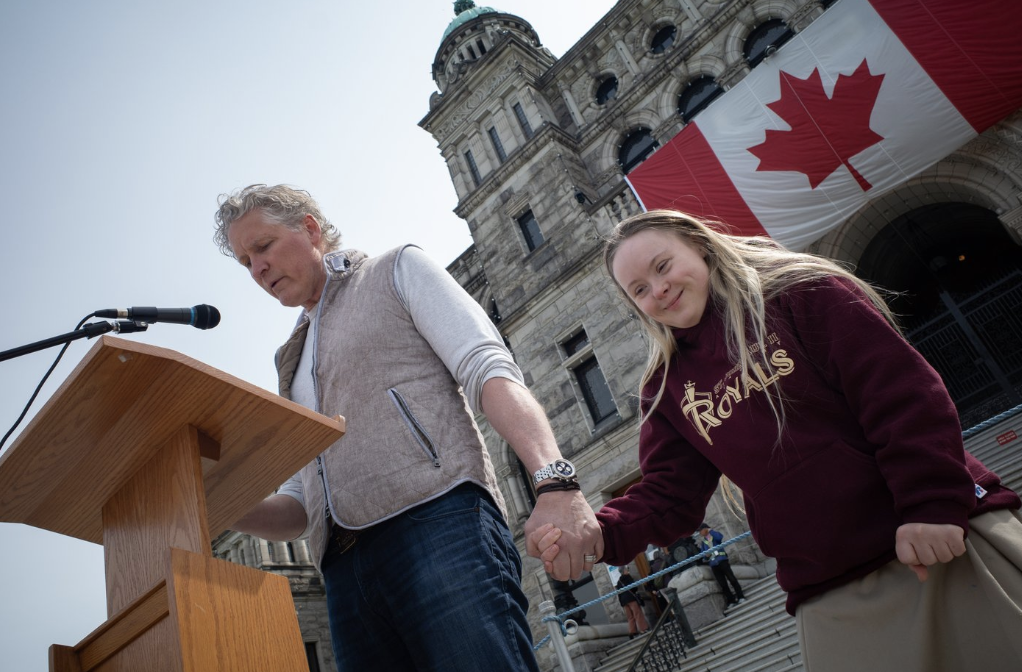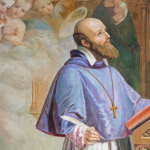One of the many blessings about being Catholic is how there are always overarching themes that inform how you see the world in day-to-day life.
Whether it’s a liturgical season or an observance as significant as this year’s Jubilee of Hope, the intersection of the life of the Church and everyday occurrences prompts profound experiences for those who reach out to grab the graces they offer.
So it was at this year’s March for Life in Victoria, British Columbia, May 8, where the Jubilee of Hope provided a new sense of optimism to the annual event. The election of Pope Leo XIV, which took place as the march began, helped as well.
At some level, these larger happenings are a cogent reminder that news stories are an illusion. Time doesn’t come packaged in small pieces ready for weekly, daily or even monthly publication. Hope projects itself past the news cycle and toward a future where grace is abundant. It’s a value through which we should survey all of reality. Hope is also at the core of pro-life arguments emphasizing the future of the unborn child and appealing to our sense of human dignity.
I likely would have thought of all this without the jubilee year hovering overhead, but in Victoria the jubilee directed my sense of the world, offering inspiration and grace. This is what the Church does.
In past years, the wider world would have stayed relatively silent during the March for Life, without jubilees, tragedies, retiring bishops or elections—papal or otherwise—to get in the way and distract. Those years were easier.
Under that format, news coverage of this year’s march would have gone something like this: Coalition for Life in B.C. founder Malcolm Roddis was the emcee. The Archdiocese of Vancouver’s pro-life chaplain, Father Larry Lynn, offered a moving prayer in which he asked God to change hearts and minds about life issues. John Paul II Academy founder Troy Van Vliet gave an inspiring talk about how his experience with daughter Annika, who has Down syndrome, strengthened his pro-life convictions and inspired the creation of the new high school. Other speakers talked about their involvement with the pro-life movement and what inspired them.
Each of these voices deserves a sidebar or short story dedicated to their contributions to this year’s march. Unfortunately, because The B.C. Catholic was the only news organization present, and we have a new pope, the traditional news approach won’t work. (There is a lesson here about the importance of robust, value-aligned media and the consequence of its absence in our society, but that article is for another day.)
So, this year, while the speakers were addressing the hundreds who attended, I was racing to find Father Francis Galvan, OSA, pastor of Sacred Heart Parish in Delta, British Columbia, who I was told was a friend of the new pope.
Asking people to share their thoughts about Pope Leo XIV as we walked through downtown Victoria was interesting. The news had just come out, and no one knew very much. In fact, most of the people I spoke with were questioning me about what I knew. What is he like? What will he do?
A few did have some thoughts to share. John Chiogna, a teacher at Holy Cross Secondary in Surrey, British Columbia, said the new pope’s quiet demeanour and simple sense of purpose felt like a good sign. “I want to have an open mind and see what happens,” he said.
From more traditional Catholics, there was some anxiety about how the new pontiff might or might not support the Traditional Latin Mass, the issue being a symbol of unity, or division, depending on who you ask.
Overwhelmingly, however, the sentiments expressed were of optimism and hope. Pope Leo XIV’s message of peace and unity in Christ was welcomed by those who had heard it.
Most didn’t care much about Pope Leo being American. It simply didn’t resonate. However, the fact that he is a native English speaker generated excitement, and after years of relying on journalists to translate Pope Francis into English, I must admit that was the first thing I thanked God for as well.
Father Medard Kamanzi, assistant pastor at St. Francis de Sales in Burnaby, British Columbia, summed it up nicely when he told me the pope’s native English was a welcome surprise that he felt would contribute to the unity of the Church. “I think that English is a language that unites more people,” he said. “He can speak directly to people in a voice that unites them together.”
Father Kamanzi said he was “consoled” by the papal announcement. “I think he will unite the Church, and I liked what he said in the beginning — wishing people to have peace. I think many people are restless — they are fighting with many things. There is division in the world today; we need the peace of Christ.”
He is also encouraged by the teachings of “the font of his community, St. Augustine … that among the community I am one of you, and in the Church I am your shepherd.” Pope Francis had the same type of humility and closeness to the people, he said.
“Community and Peace” seems like it could be the perfect motto for a new pope in 2025 — a real sign of the times. And when it comes to the March for Life, if that doesn’t capture the heart of the pro-life message, I don’t know what does.
Habemus papam. Blessings and prayers for the new pope.




